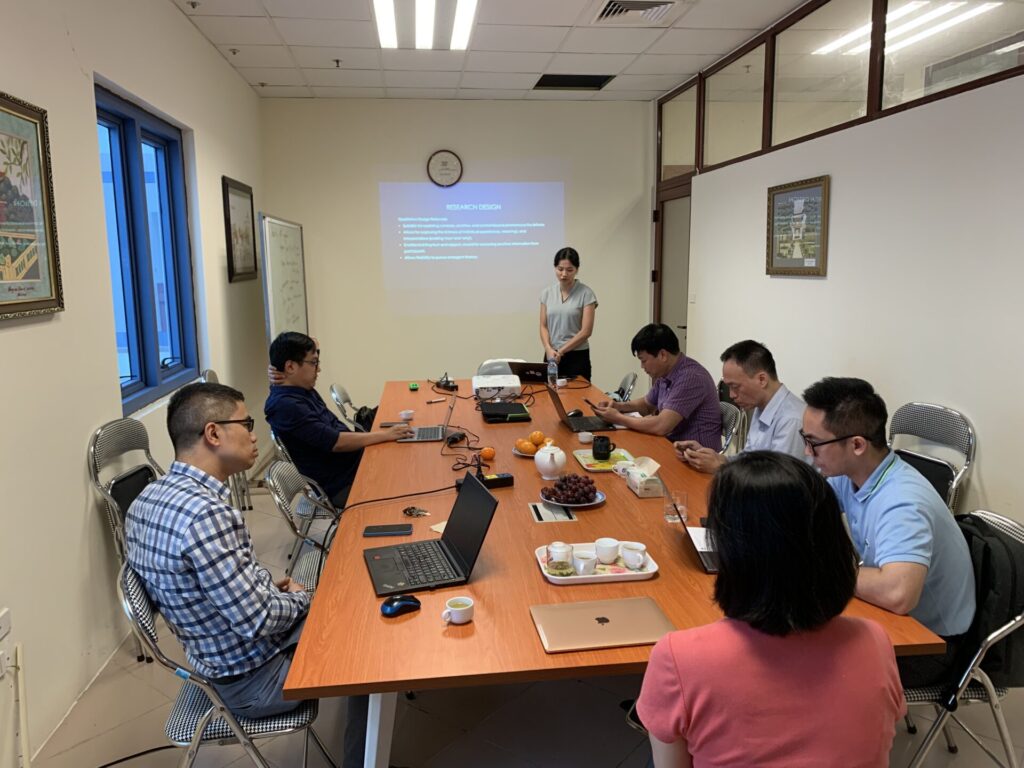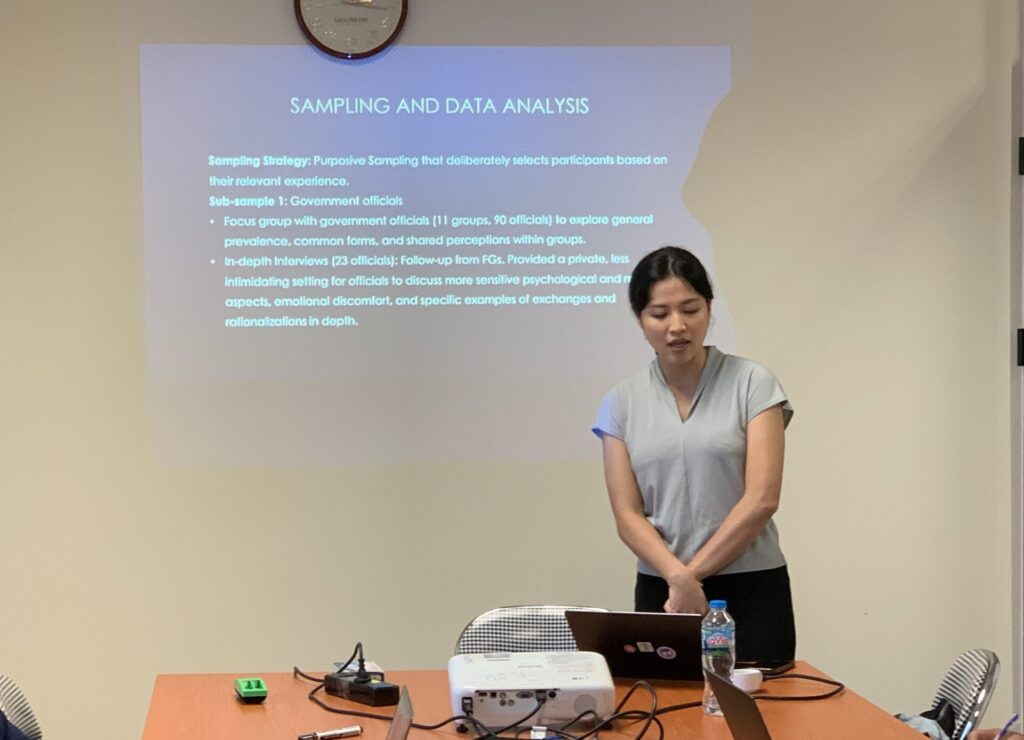With the approval of the E-PhD Academic Committee, the standing body of the E-PhD Program Academic Committee organized an academic seminar to provide feedback on the departmental-level doctoral dissertation for doctoral candidate Tran Hong Nhung – E-PhD Program on the afternoon of May 15, 2025, in Room 1501, Building A1, National Economics University.

The seminar was attended by faculty members of the Academic Committee, including: Assoc. Prof. Dr. Le Quang Canh – Standing Member of the Academic Committee; Academic Committee members: Prof. Dr. Nguyen Thi Tuyet Mai, Assoc. Prof. Dr. Nguyen Vu Hung, Assoc. Prof. Dr. Bach Ngoc Thang, Dr. Nguyen Hoang Linh – Faculty of Marketing, Dr. Nguyen Van Dai – Faculty of Planning and Development, and doctoral students from the program.

During the seminar, the doctoral candidate presented an overview of her research topic: "Analyzing the dynamics of bribery-prone relationship in Vietnam: A perspective of moral disengagement theory and the norm of reciprocity."
The research has yielded the following key findings: (1) Personal favors occur not only within familiar networks but also spread through implicit reciprocity mechanisms, thereby forming and maintaining relationships that are prone to bribery. (2) Two core psychological mechanisms—emotional discomfort and rationalization strategies—are employed by both officials and entrepreneurs to achieve moral disengagement, enabling them to enter into and persist in corrupt exchange chains. (3) The dissertation develops an integrated model of the initiation and maintenance phases of bribery relationships based on the intersection of reciprocity obligations and moral disengagement mechanisms.
Furthermore, the research has made several novel contributions: (1) Providing rich qualitative data from the Vietnamese context, clarifying the role of "relationship" culture and traditional Confucian gift-giving practices in petty corruption. (2) Extending Moral Disengagement theory by specifically identifying justification mechanisms and emotional discomfort states in each phase of corrupt relationships. (3) Combining social exchange theory with psychological models to explain both the initiation and perpetuation of bribery relationships, thereby suggesting more appropriate control and monitoring measures for both enterprises and public authorities.
Additionally, the research findings have been published in international academic journals, and the Academic Committee members have given positive evaluations regarding the scientific value and contribution to the specialized knowledge base, considering it a valuable reference for future research.
This activity aims to maintain an academic exchange environment, helping doctoral candidates learn, share knowledge, and exchange research experiences with scientists and other doctoral students. The seminar proceeded with an atmosphere of frank and constructive discussion.
Text and Photos: Institute for Sustainable Development
